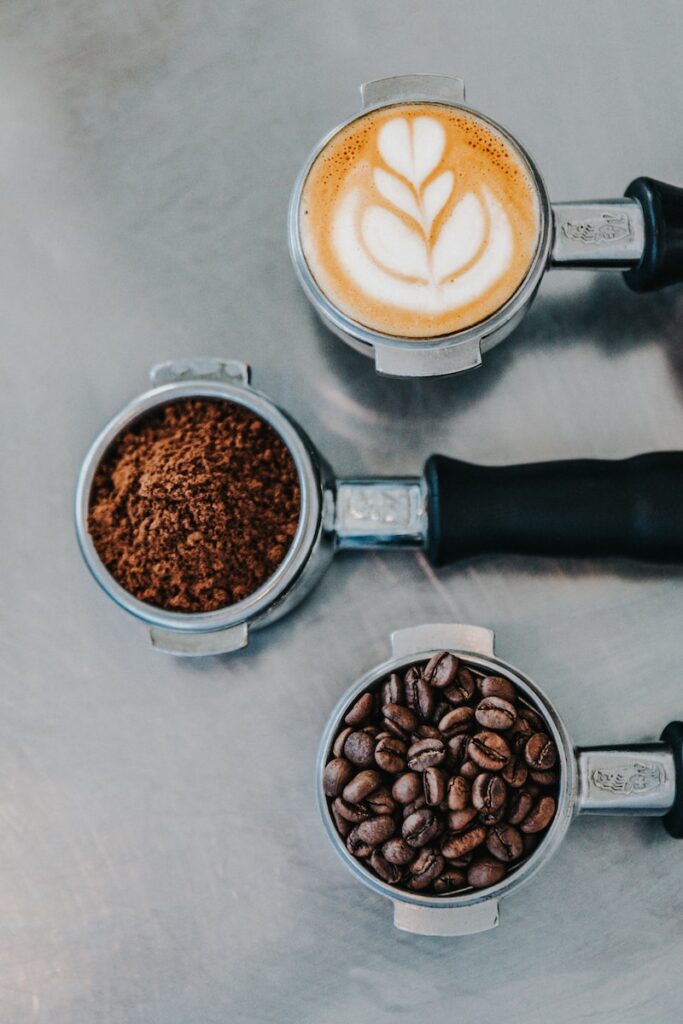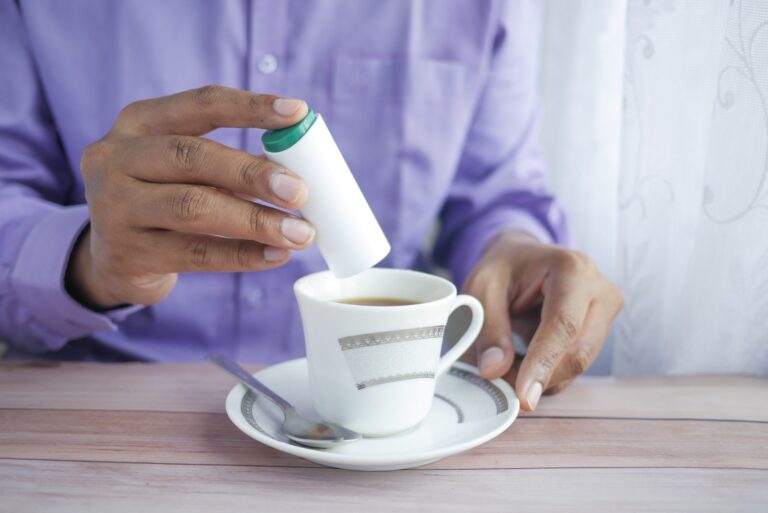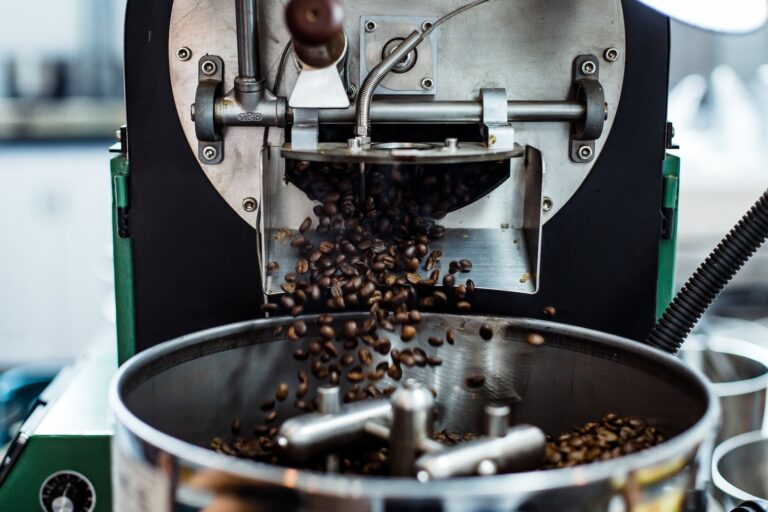Are you constantly searching for that magical elixir to power up your day and boost your overall well-being? Well, look no further because we have a captivating question for you: is specialty coffee the ultimate superfood or just another overhyped trend in the wellness world? Brace yourself as we dive into the rich aroma and complex flavors of this much-debated topic.
Join us on an adventurous quest to unravel the truth behind specialty coffee’s potential health benefits, separating fact from fiction. So grab a cup of joe, sit back, and prepare to discover whether specialty coffee truly deserves its spot on the throne of wellness or if it’s all just frothy marketing tactics.
Introduction: The Rise of Specialty Coffee

The world of coffee has undergone a significant shift in recent years, with the rise of specialty coffee. This new wave of coffee culture places emphasis on high-quality, hand-crafted, and ethically sourced beans that are roasted to perfection. Gone are the days when a cup of coffee was simply something to give you a caffeine boost; now, it is an experience to be savored.
Specialty Coffee Defined:
But what exactly is specialty coffee? The term “specialty” refers to coffee beans that score above 80 points on a grading scale created by the Specialty Coffee Association (SCA). These points are based on factors such as aroma, taste, balance, and aftertaste. Regular or commercial coffees usually score below this threshold and are not considered specialty.
Though specialty coffee has been around for decades, it has gained widespread popularity in recent years due to changing consumer preferences towards healthier and more sustainable options.
The Third Wave Movement:
Specialty coffee is often associated with the third wave movement that began in the early 2000s. This movement sought to elevate the quality and standards of coffee through small-scale roasting techniques and direct trade relationships with farmers. It also placed importance on educating consumers about where their coffee comes from and how it is produced, leading to increased awareness and appreciation for specialty beans.
What is Specialty Coffee?
Specialty coffee has become increasingly popular in recent years, with a growing number of cafes and coffee shops around the world offering this unique and high-quality brew. But what exactly is specialty coffee and why has it gained such a cult following? In this section, we will delve into the details of what makes specialty coffee so special.
Firstly, let’s address the basic definition – specialty coffee refers to beans that have been graded at 80 points or above on a 100-point scale by certified Q graders. These are trained professionals who assess the quality of the beans based on various factors including taste, aroma, and defects. This means that only a small percentage of all coffee produced globally can be classified as specialty coffee.
But beyond just numbers, specialty coffee represents a commitment to quality throughout every step of the production process. From meticulously selecting only the finest beans from specific regions to using carefully controlled roasting techniques, everything contributes to creating an exceptional cup of joe.
One key factor that sets specialty coffee apart from other types is its focus on traceability and sustainability. Specialty coffee farmers often work directly with their buyers, establishing long-term relationships built on trust and mutual respect.
This not only ensures fair prices for both parties but also allows for transparency in terms of sourcing practices. Knowing where your coffee came from and how it was grown can make enjoying your morning latte even more satisfying.
The Debate: Superfood or Hype?
The debate surrounding the term “superfood” has been ongoing for years, and it’s no different when it comes to specialty coffee. Some people claim that specialty coffee is a superfood, packed with health benefits and essential nutrients, while others argue that it’s just another overhyped fad.
On one hand, supporters of the superfood status for specialty coffee point to its high levels of antioxidants and other beneficial compounds. These antioxidants help fight against free radicals in the body, which can cause damage to cells and lead to chronic diseases like cancer and heart disease. Additionally, specialty coffee contains essential minerals such as magnesium, potassium, and chromium, all of which are important for maintaining overall health.
Moreover, some studies have shown that drinking moderate amounts of coffee (1-3 cups per day) has been linked to a reduced risk of type 2 diabetes , Parkinson’s disease , and even certain types of cancer . This further adds to the argument for specialty coffee being a superfood.
However, there are also those who believe that labeling specialty coffee as a superfood is just marketing hype. They argue that while it may contain beneficial components, these can easily be obtained from other sources in our daily diet. For example, antioxidants can be found in abundance in fruits and vegetables without having to rely solely on coffee consumption.
Specialty Coffee and Mental Health
The specialty coffee culture has exploded in recent years, with an increasing number of people turning to high-quality, artisanal brews for their daily caffeine fix. Along with this rise in popularity comes the growing belief that specialty coffee can have positive effects on mental health. But is there any truth behind this claim or is it just another marketing strategy?
Firstly, we need to understand what makes specialty coffee different from regular coffee. Specialty coffees are made from premium-grade beans that have been carefully selected and roasted by highly skilled professionals. This attention to detail results in a superior cup of coffee with distinct flavors and aromas, making it a unique sensory experience.
One of the main arguments for specialty coffee’s impact on mental health is its high antioxidant content. Antioxidants help our bodies fight off free radicals that can cause cellular damage and lead to chronic diseases such as cancer, heart disease, and Alzheimer’s. Specialty coffees typically contain more antioxidants than regular coffees due to their higher quality beans and roasting methods.
Another aspect of specialty coffee that may positively affect mental health is its caffeine levels. While caffeine is known to have some negative side effects when consumed in excess, moderate amounts can provide various benefits for mental well-being. Studies have shown that caffeine can improve cognitive function, boost mood, and reduce symptoms of depression and anxiety.
How to Choose High-Quality Specialty Coffee
Choosing high-quality specialty coffee can be a daunting task, especially with the wide variety of options available. However, learning how to select the best beans for your preferred brew can greatly enhance your coffee experience and potentially improve its wellness benefits. In this section, we will discuss some important factors to consider when choosing high-quality specialty coffee.
1] Origin and Production Process:
The origin of the coffee beans can have a significant impact on their quality and flavor profile. Specialty coffees are typically grown in specific regions around the world known as “coffee belt” or “coffee zone.” These areas have ideal climate conditions for producing high-quality beans with distinct taste notes.
2] Roasting Date:
Coffee beans begin to lose their freshness after they are roasted, so it is crucial to pay attention to the roasting date when purchasing specialty coffee. Ideally, you want to choose beans that have been freshly roasted within two weeks before purchase.
3] Harvest Season:
Similar to fruits and vegetables, coffee has a harvest season that varies depending on its origin country. Generally, coffee harvested during peak seasons tends to be more flavorful compared to off-season beans that may have been stored for an extended period.
Alternatives to Specialty Coffee for Wellness
When it comes to wellness, coffee has been a topic of much debate. While some view it as a superfood with numerous health benefits, others argue that it can have negative effects on our bodies. For those who are looking for alternatives to specialty coffee for their wellness routine, there are a few options to consider.
1] Matcha: This vibrant green powder is made from ground green tea leaves and is known for its high concentration of antioxidants, vitamins, and minerals. It also contains the amino acid L-theanine which has been shown to promote relaxation and improve mood. Matcha also provides a gentle boost of caffeine without the crash that often follows regular coffee consumption.
2] Herbal Teas: If you’re looking for something warm and comforting without the caffeine kick, herbal teas can be a great alternative to specialty coffee. From calming chamomile to invigorating peppermint, there is a wide variety of herbal teas available that offer different health benefits such as improved digestion or better sleep.
3] Golden Milk: Also known as turmeric latte, golden milk has gained popularity in recent years thanks to its anti-inflammatory properties and numerous health benefits. Made from turmeric, coconut milk, ginger, and other spices like cinnamon and black pepper, this warm drink can provide an immunity boost while also satisfying your morning beverage craving.
4] Processed Sugar-Free Hot Cocoa: If you have a sweet tooth but want to avoid the refined sugar found in popular flavored coffees drinks like mochas or latt es, opt for a processed-sugar free hot cocoa. You can make your own at home using unsweetened cocoa powder, honey or a natural sweetener of your choice, and your favorite plant-based milk.
5] Chicory Root Coffee: For those who love the taste and ritual of coffee but want to avoid caffeine, chicory root coffee is a great alternative. This roasted root has a similar taste to coffee with hints of chocolate and caramel, and it’s naturally caffeine-free. It also has prebiotic properties that can support digestive health.
Incorporating these alternatives into your wellness routine can help reduce your dependence on specialty coffee while still providing the warm beverage experience you crave. As always, it’s important to listen to your body and find what works best for you.
Conclusion: The Final Verdict on Specialty Coffee for Wellness
After exploring the potential health benefits and drawbacks of specialty coffee, it is clear that this popular beverage offers both advantages and disadvantages for overall wellness. While some may argue that the rise of specialty coffee as a superfood is simply hype, there is evidence to suggest that it can have positive effects on our physical, mental, and emotional well-being.
First and foremost, the high levels of antioxidants found in specialty coffee cannot be ignored. These powerful substances help to combat free radicals in the body, reducing inflammation and protecting against various chronic diseases such as cancer and heart disease. Additionally, caffeine has been found to increase alertness and cognitive function, potentially improving focus and productivity in our daily lives.







